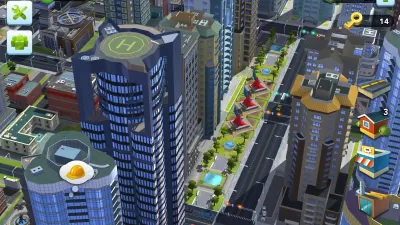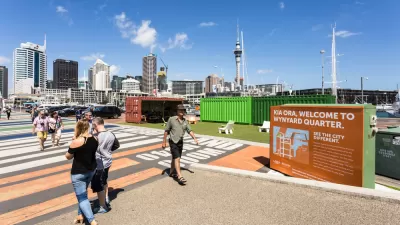The Codes Study is updated! These are the cities that are rewriting their land use laws to promote wellness, economic strength, and environmental resilience.

"About twelve years ago, I started the Codes Study to analyze cities, towns, and counties taking proactive steps toward zoning to encourage livable places. And by livable, I mean mixed-use, economically vibrant, convivial, walkable, bikeable, and transit-friendly. Many places are using form-based codes to encourage livability, in jurisdictions covering over 45 million people worldwide."
"Such code responds to today’s market pressures of families and corporations alike wanting to dwell in walkable urban places. It saves critical infrastructure dollars because of building in more compact forms. It can let us preserve more wilderness and productive farm and range lands with less sprawling development. It encourages wellness by making it easier to connect with others, instead of isolating us in single-use pods. It reinjects nature into cities in keeping with the character of its surroundings."
Hazel Borys gives us an update on the latest Codes Study, and points out recent zoning and subdivision trends including lean codes, unified codes, codes with no parking requirements, and codes that are cash cows.
FULL STORY: Codes Study: Trends in zoning reform

Alabama: Trump Terminates Settlements for Black Communities Harmed By Raw Sewage
Trump deemed the landmark civil rights agreement “illegal DEI and environmental justice policy.”

Study: Maui’s Plan to Convert Vacation Rentals to Long-Term Housing Could Cause Nearly $1 Billion Economic Loss
The plan would reduce visitor accommodation by 25% resulting in 1,900 jobs lost.

Why Should We Subsidize Public Transportation?
Many public transit agencies face financial stress due to rising costs, declining fare revenue, and declining subsidies. Transit advocates must provide a strong business case for increasing public transit funding.

Paris Bike Boom Leads to Steep Drop in Air Pollution
The French city’s air quality has improved dramatically in the past 20 years, coinciding with a growth in cycling.

Why Housing Costs More to Build in California Than in Texas
Hard costs like labor and materials combined with ‘soft’ costs such as permitting make building in the San Francisco Bay Area almost three times as costly as in Texas cities.

San Diego County Sees a Rise in Urban Coyotes
San Diego County experiences a rise in urban coyotes, as sightings become prevalent throughout its urban neighbourhoods and surrounding areas.
Urban Design for Planners 1: Software Tools
This six-course series explores essential urban design concepts using open source software and equips planners with the tools they need to participate fully in the urban design process.
Planning for Universal Design
Learn the tools for implementing Universal Design in planning regulations.
Smith Gee Studio
Alamo Area Metropolitan Planning Organization
City of Santa Clarita
Institute for Housing and Urban Development Studies (IHS)
City of Grandview
Harvard GSD Executive Education
Toledo-Lucas County Plan Commissions
Salt Lake City
NYU Wagner Graduate School of Public Service




























